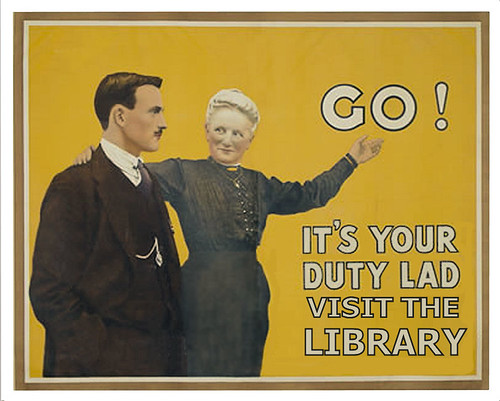Libraries – a public and social knowledge space

As the UK Government attempts to pay for ever more diverse campaigns emerge against attempts to cutback public services.
One of the most interesting has been against cuts in libraries. The campaign has gone viral through Facebook and Twitter and gained the support of prominent artists and public figures. Of course part of the reason for the strength of the campaign may be nostalgia, another may be that the move to close libraries has upset many of the middle classes who voted for the ConDem coalition government in England.
The Government’s arguments seem to be threefold. One we cannot afford libraries. Two, why should they be a public service and why can’t they be run by the private sector or by volunteers. And three that they are out of date in the internet age.
The first two are predictable responses from aright wing government committed to reducing public services. But the latter is interesting as is the response. To some extent I guess this is based on nostalgia or on a feeling that a paper based book represents something different and more than a digital artefact. Partly it is based on a social inclusion agenda. But partly it is focused on the idea of libraries as a physical and social space, analogous to the role of pub. Even when information can be found through a simple Google search, even when we can chat directly with our friends over VOIP connections, even when our friends are measured in terms of connections om Facebook, we still value public spaces. And the library is a public pace lined to knowledge. Of course it is not the only one – we have schools and universities. But these have various restrictions and exclusivity based on age, income or qualification. In the UK libraries have represented one of the few public and social spaces linked to knowledge which have been open to all.
And as such people are instinctively opposed to their closure or privatisation.
